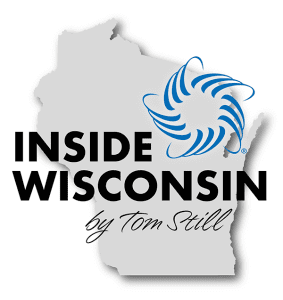By Tom Still
 MADISON, Wis. – Wisconsin has been a center for research and clinical applications in human health for well over a century, from vitamin discoveries to the founding of the nation’s first college genetics department to breakthroughs in organ transplants, cancer therapies and medical imaging.
MADISON, Wis. – Wisconsin has been a center for research and clinical applications in human health for well over a century, from vitamin discoveries to the founding of the nation’s first college genetics department to breakthroughs in organ transplants, cancer therapies and medical imaging.
Maybe now, more people from across the nation and the world will recognize it.
As part of a federal process launched by passage of the CHIPS and Science Act, the Wisconsin Biohealth Tech Hub was designated as one of 31 such hubs that ranged from precision and predictive medicine (the category in which the Wisconsin proposal competed) to technologies such as energy innovation, materials science, quantum computing and more.
It comes with a $350,000 planning grant and the chance to compete for $70 million per hub to work with private businesses to create jobs, strengthen U.S. competitiveness and, in the case of the 11 medical-related hubs announced by the White House, save and improve lives.
That’s the good news. The better news is that Wisconsin is not a one-trick pony when it comes to competing for grants tied to what is becoming a generational investment in science and technology.
For example, one of two Tech Hubs in the quantum computing space is centered around the Chicago Quantum Exchange and includes many Illinois partners – as well as Wisconsin and Indiana participants – with the goal of boosting industry access to shared-use quantum facilities and hardware to meet industry needs and generate jobs. In its simplest terms, quantum computing uses aspects of computer science, physics and mathematics to solve complex problems faster than classic computers.
That same Chicago-based project, called The Bloch Tech Hub, is also competing for a National Science Foundation “Regional Innovation Engine” Type 2 grant that could lead to a 10-year, $160 million award.
Wisconsin was awarded two Type 1 NSF grants out of 44 in the country, which was whittled down from nearly 500 applications. Many states didn’t claim a single award; only a small number had two or more. Here are the Wisconsin awardees, announced in May:
- A $1 million planning grant went to a water and energy consortium by The Water Council, a Milwaukee-based group that helped to make that region a global leader in freshwater research and applications. It has built a coalition of industry, research and other partners to compete for a Type 2 grant.
- Another $1 million NSF grant went to a next-generation agriculture consortium led by WiSys, which manages patenting and licensing for discoveries at University of Wisconsin campuses outside Madison and Milwaukee while operating “Venture Labs” in a handful of locations. WiSys hopes to win a Type 2 award to solve problems, from farm to table. that could improve agriculture from business and environmental perspectives.
The Wisconsin Technology Council is a participant in all three NSF processes.
Through the CHIPS and Science Act and the Inflation Reduction Act, the nation is undergoing a science and tech revolution not seen in years, and perhaps generations. In “Science, The Endless Frontier,” a July 1945 report to President Harry Truman, Vannevar Bush called basic research “the pacemaker of technological progress” and urged creation of what is today the NSF.
In fact, parts of the federal legislation in action today borrowed from that 1945 report through bipartisan legislation called “The Endless Frontier Act,” which was introduced a few years back. U.S. Rep, Mike Gallagher, R-Green Bay, was one of its four co-sponsors.
Wisconsin has expertise in many technology disciplines that can help lift historic sectors such as manufacturing, agriculture, natural resources and medicine. Let’s celebrate the fact that Wisconsin has the ideas and talent to ride the latest wave in biohealth – and to do the same in other sectors.
Still is president of the Wisconsin Technology Council. He can be reached at tstill@wisconsintechnologycouncil.com.


